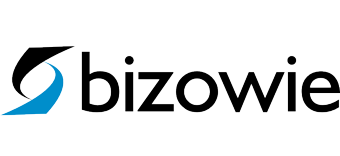Key ERP Features for Publishers & Book Distributors
If you’re a publisher or book distributor, searching for a new ERP system can be daunting. Because the book industry is so unique, not every solution is feature-rich enough to help you bring all your systems under one roof.
If you’re looking for a new software solution, don’t settle for a system that will force you into offline processes or clunky third-party products. As you’re reviewing ERP options, keep these features in mind to ensure the system you select can meet all your needs.
- Royalties Tracking
Managing the accrual and payment of royalties to authors and rights holders is a key part of the publishing process. A robust royalties solution is a key feature for publishers. Preferably, royalties should be handled separately from commissions (since you may wish to pay royalties to authors and commissions to salespeople), and should handle multiple authors or rights holders, the ability to pay royalties on net or gross revenue, and the ability to exclude author sales, media comps, and other non-eligible transactions.
- Multiple Item Numbers and Product Attributes
Many ERP solutions assume that an item will only have one identifying number used for lookups. However, publishers often need to track multiple distinct item numbers – an internal item number, catalog number, ISBN-13, ISBN-10, ASIN (Amazon Standard Identification Number), etc. Look for a system that can easily handle lookups across multiple types of item number for easy cross-reference.
Similarly, the ability to use custom fields to track attributes like authors, formats, binding, number of pages, edition numbering, and other attributes can make it simple to search and cross-reference titles that may span a variety of part numbers (for example, print vs. audio book sales).
- Indirect Costing
Accurate costing and royalties management relies on a deep understanding of all the costs that go into a particular title. Many software products are based on a simple “buy and sell” model that assumes that all product costs are rolled up into the purchase or manufacture of the product itself. However, in publishing, it’s also important to track and roll up indirect costs – author advances, editorial, typesetting, prepress, etc.
- Consignment Management
Consignment distribution is an unfortunate fact of life for many publishers and book distributors. If your large customers require consignment sales, it’s important to choose a system that can seamlessly handle consignments from end to end – properly handling consignment orders without accounting for them as sales, tracking consigned inventory, and recording and recognizing sales as they occur.
- Mixed-Mode Support
So many software products are designed to work in an environment that’s exclusively retail or exclusively wholesale. This is fine for many businesses, but publishers often have substantial retail and wholesale operations and need a system that can easily handle both. A good publishing solution will offer everything you need on the wholesale side while allowing you to seamlessly integrate and automate your retail sales – integrating with your e-commerce and controlling the order process end to end.
- EDI and ONIX Support
Integrated EDI support allows you to completely automate transactions with large vendors and customers. Customers can send purchase orders from their ERP system to your ERP system with no manual work required, and in turn, your ERP system can send back shipment notifications and invoices. And if you’re managing product/title data in the ERP, that data can be transmitted electronically via EDI or ONIX without the need for spreadsheets.

